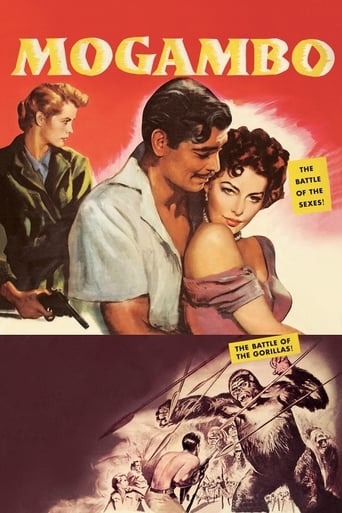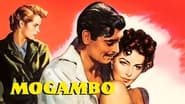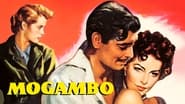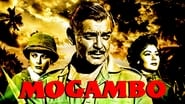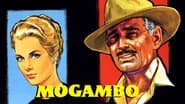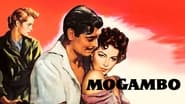gkeith_1
Spoilers. Observations. Opinions.Female conflict. Hot, flashy Ava. Cold, repressed Grace. You can see Grace eyeing Ava's curvy costume at the first meeting. Grace is dressed up like some ladylike spinster complete with sensible thick-heeled walking shoes. She almost ogles Ava, in a way, almost jealous that Ava looks like a real woman.Gable with the exposed knees. Hubba-hubba. Ava goes out of her way to compliment him. She evens commands him to throw her robe into her shower, while knowing it's his property and his soap. She takes a lot of license.Ava is so loving with the animals. She wants to feed them and play with them. She is comfortable walking outdoors in the pouring rain. Meanwhile, Grace, the uptight fuddy-duddy who she is, is so naïve that she wants to get in those clunky walking shoes and explore the countryside. Lo and behold, after seeing some wild animals fighting and devouring each other, she falls into a large hole after a scary gigantic black cat tells her to stop acting so stupid. Ava would have charmed the little feline darling.
brucewla
Wow. This film, I have heard about, but I have never seen it. Reportedy, it is a remake of Red Dust (never saw that either) which also starred Clark Gable. I hate to say it (Being a fan of Gable, Grace Kelly, and ESPECIALLY--Ava Gardner.....this was a disappointment.Yes there were big stars, yes, it was beautifully photographed, yes, you got to see Ava Gardner (hey I never get tired of that), BUT what is it that was going on? Not much. They hung around camp, talked, talked, and talked some more. Ava decides to take a walk...not a good idea considering where they are....he has to go save her, etc.A lot of people have concerns about how the animals were treated, the implicit racism etc. but you have to remember, this was made in 1953. You can't really judge what when on in 1953 but 2011 standards. People still try though.Eh I don't know what else to write about the movie...because to me...there was nothing there.Sadly disappointed.
moonbus-982-519398
Mogambo, 1953, is bound to be compared with Red Dust, 1932. The two films are based on the same stage play by Wilson Collison; the same man, John Lee Mahin, wrote both screenplays, some of the lines are even the same; the three main characters and the love triangle (or quadrangle) they form is the same; the leading man is played by the same actor, Clark Gable; and if you saw the first film, then you already know the "bang-up" ending.Many people will find the later film the weaker of the two, but I believe that if it is viewed for what it is, instead of for what it is not, it is not bad value for money. What made Red Dust a winner was Jean Harlow, her snappy witty lines, and the sweaty sensuality of the screen chemistry between her and Gable. That is what Mogambo is not; but it has a number of other things to offer instead. While most of the secondary characters in Red Dust, including the character of the adulterous wife (originally played by Mary Astor), are cast into the shadows by the sizzling repartee between Harlow and Gable, Mogambo allows the corresponding characters to develop and show some depth. In Mogambo, the motivations and inner conflicts of the adulterous wife (now played by Grace Kelly) are explored. The sappy jilted husband is given a great deal more depth in the later film than in the earlier one. And Gable's right-hand man, Brownie, is given a more substantial part as well. This makes the later film more rounded and the characters more believable, whereas the earlier film was basically a stage duel between the barbarian and the hooker. Red Dust has a sort of Who's-Afraid-of-Virginia-Woolf claustrophobia about it; it could have been entirely played out on a single indoor stage set. Mogambo features John Ford's typical outdoorsy-ness, some pretty spectacular wildlife photography (for 1950), and a rather tense confrontation with a tribe of angry, bare-breasted, spear-wielding natives (real Africans!). Not Ford's or Gable's best by any means, but a good solid show, worth 7 out of 10.Gable plays the same boorish, over-confident, God's-gift-to-women type in both films, but mellowed a bit (like wine, I mean). Whether you like that kind of man or not, you have to admit that he played it with grace and poise, and he showed that he could still do it 20 years on. The Gable character has been criticized by other reviewers for being incoherent or sappy. I disagree: he shows himself to be a man of raw courage, facing down wild animals, a savage tribe, a storm, etc., but finds he has lost his nerve when it comes to confronting the wimpy clueless husband. It takes Gardner to show him it wasn't cowardice, but that he did the decent thing after all.Grace Kelly takes over the role of the adulterous wife, a mere 27 years old (so we are told) and very naive; it takes Gable's experience, wisdom, and bluntness to make her see that she does not love her husband, whom she has known since she was five. Her performance has been criticized as confused and incoherent, and Gable too old to be attractive to her; but I can well believe that a sheltered girl who married her childhood-love would be pretty confused and dotty after the first 'real man' she had ever met had heroically saved her life twice in one week. Her distress and confusion are well played, and she screams well when confronted by a panther.Ava Gardner--well, what can one say that hasn't been already? The scene in which Gardner darts into the tribal missionary church and genuflects while the rest of the safari party go on about their business, gives her character an unexpected dimension the Harlow character lacked. I think it shows grand professionalism on Gable's part that he apparently quite happily let Gardner steal scene after scene. I guess Gable didn't have to prove anything to anyone anymore.
